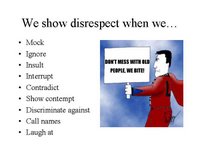 Now that the Internet is well accepted we have the online Church of Fools—a virtual community of believers. Don’t laugh, if the Lord tarries, the virtual church could be the new emergent church of the future (ha!). How you could apply the admonitions in Romans 14:13-14 in a virtual church setting? Would you criticize someone who “attends” a virtual church?
Now that the Internet is well accepted we have the online Church of Fools—a virtual community of believers. Don’t laugh, if the Lord tarries, the virtual church could be the new emergent church of the future (ha!). How you could apply the admonitions in Romans 14:13-14 in a virtual church setting? Would you criticize someone who “attends” a virtual church?
When Paul wrote Romans 14, there were no megachurches. This Forbes article regards mega churches as mega businesses. If you transported a believer from Paul’s day to one of these megachurches, what new applications of Romans 14:13-14 would he find? What barriers and pitfalls to fellowship would he observe?

Pitfall traps are commonly used in science. What is the equivalent of a pitfall trap in an ailing church fellowship? Look here for some ideas. Is the staff coming and going regularly at your church? Maybe it’s a pitfall trap?










































